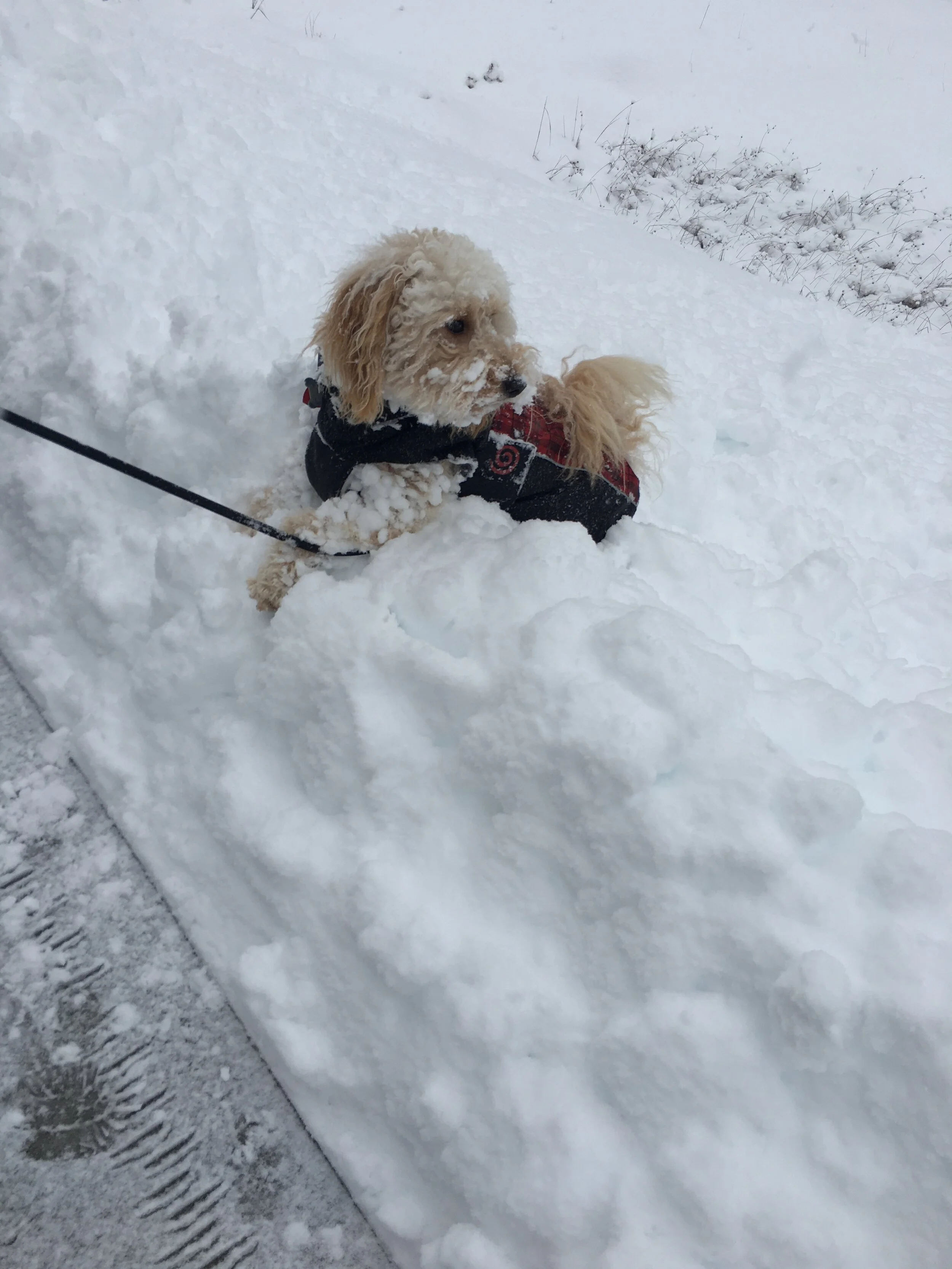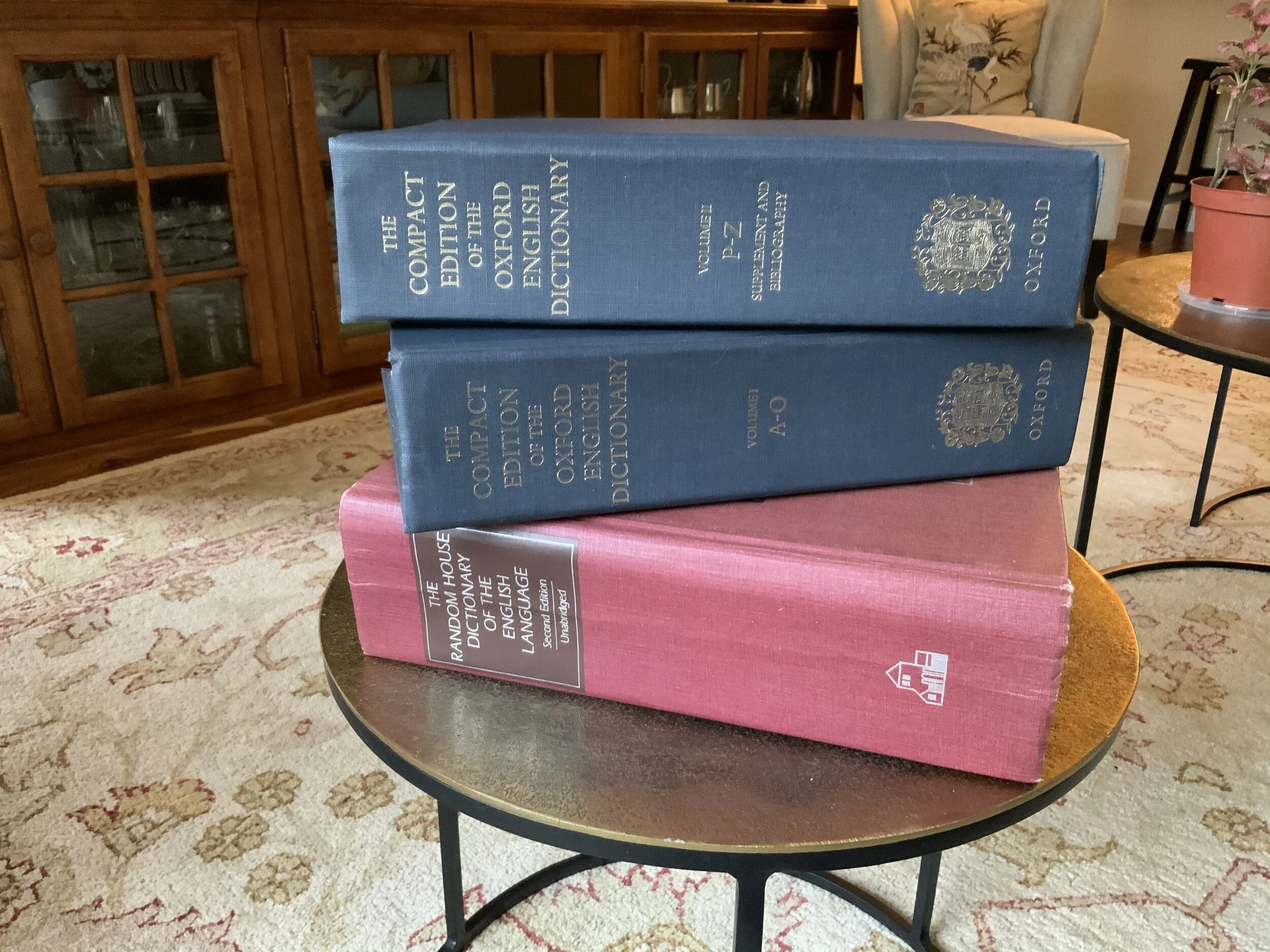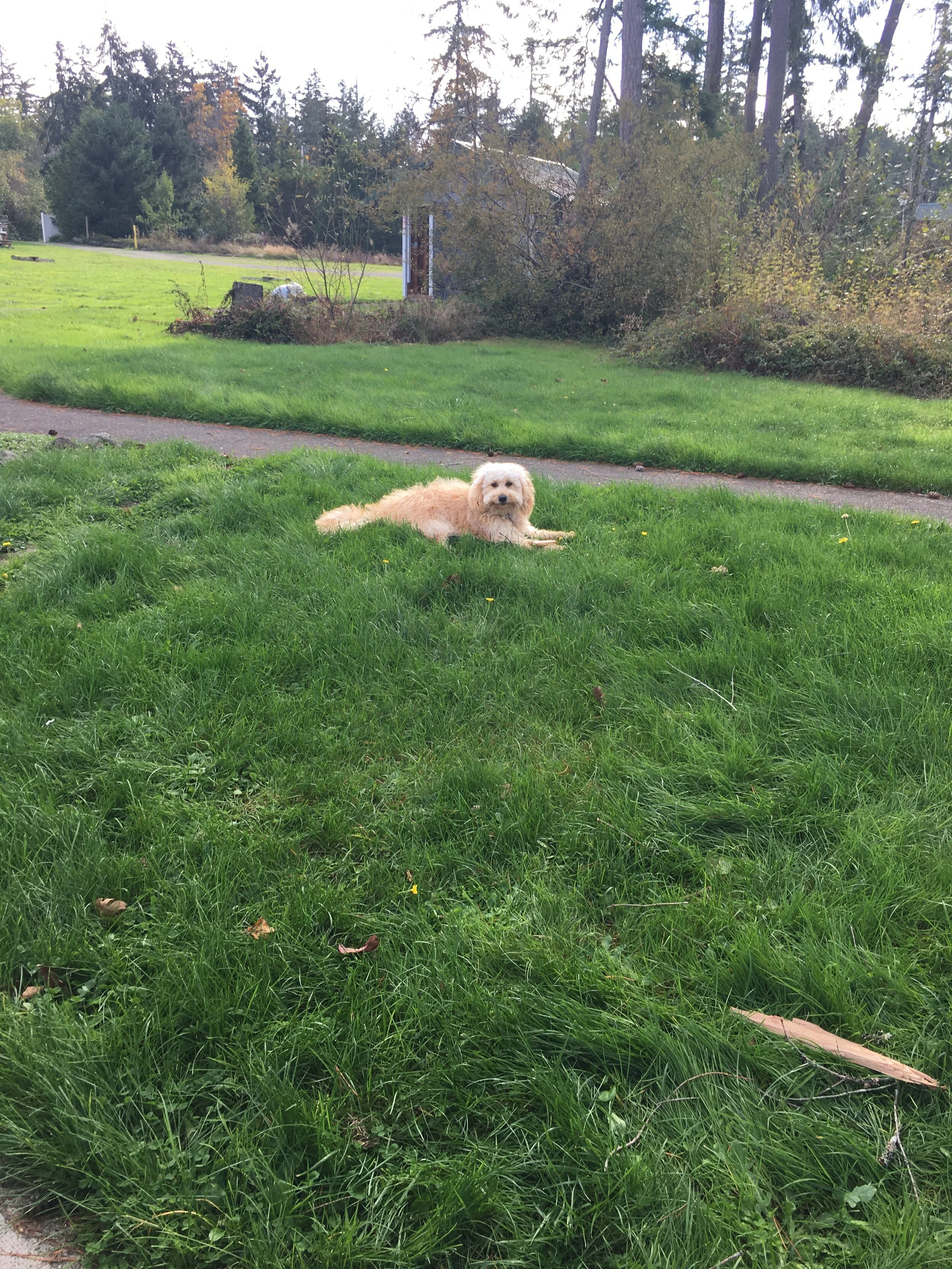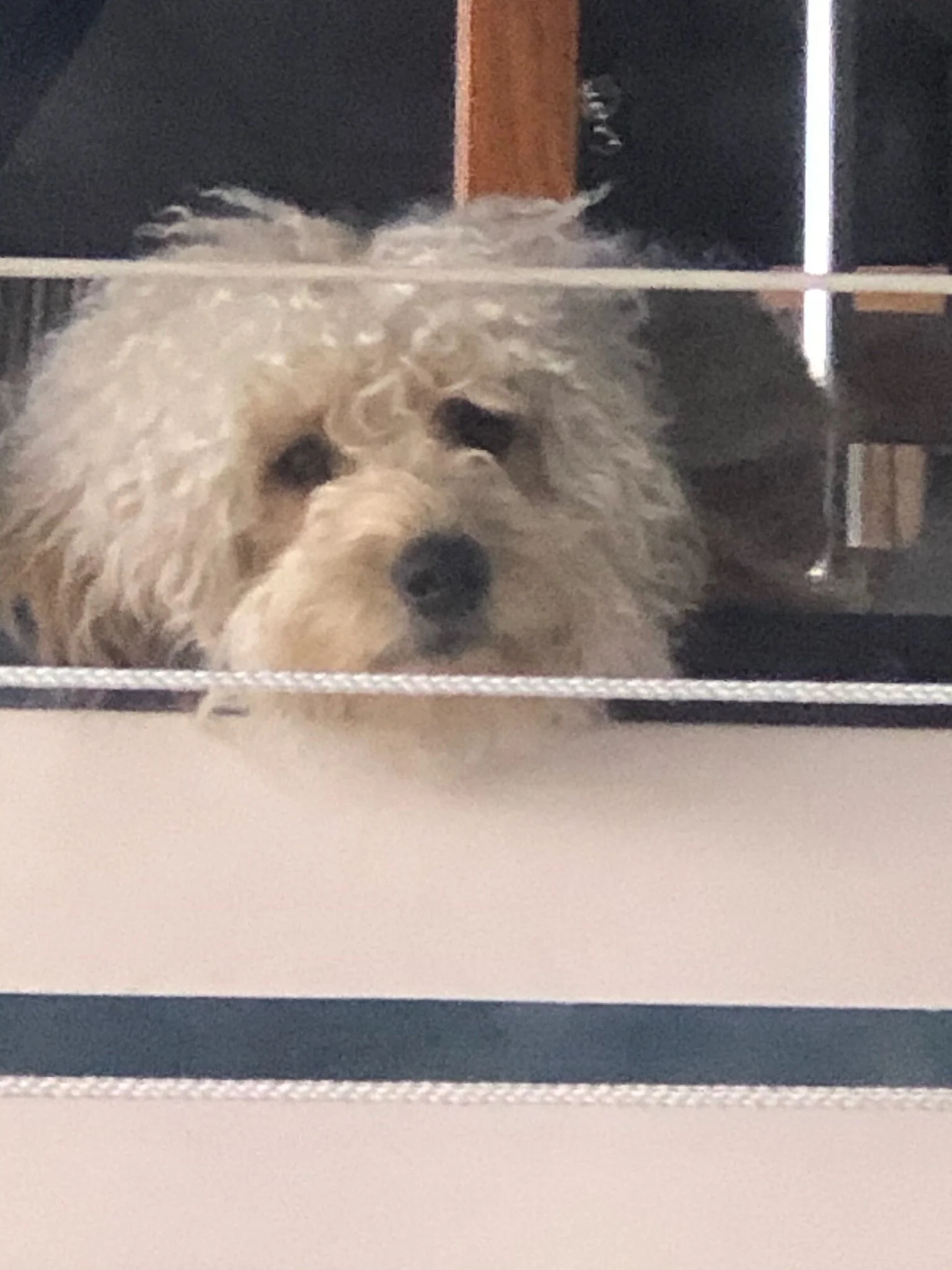#33 PUPPY - SCOOTER'S SNOW DAY
St. Valentine’s Day, February 14, 2021
Scooter in the Snow
It’s true, one can find within the Eskimo-Aleut languages, fifty words for snow. There are reasons for that, and I leave it to you, should you be curious, to learn why.
Here, learn these:
qanikcaq: ‘snow on ground’
muruaneq: ‘soft deep snow’
nutaryuk: ‘fresh snow’
“Central Siberian Yupik has 40 such terms, while the Inuit dialect spoken in Canada’s Nunavik region has at least 53 . . .” Who would guess such variety for wet, white stuff weather brings?
Oh, but thanks to their compounding language, the Swedes use at least 25 words for snow. Among them:
Kramsnö- Snow that can be easily shaped into snowballs
Lappvante- thick falling snow
However, none of these hold a stick (where did we get that expression?) to what you might hear among the Sami people who live in the far north of Norway, Sweden, Finland, and Russia – fishers, trappers, and reindeer herders. (By the way, they have 1000 words for reindeer.)
As you might expect from Europe’s northernmost indigenous people, the Sami have at least 180 words for snow, many of which suggest that snow can be a dangerous weapon: e.g., Cahki- A hard snowball, the kind that only sadistic people use in snowball fights.
But, for my benign purpose, I share these from the Sami people:
· Soavli- Slushy snow
· Vahca- Loose snow or new snow
That stick we were holding, thinking we had to put it down when it came to the Sami people? No, no. They may have cornered the prize when it comes to reindeer, but not snow.
Snow is a vital part of weather for many people in the world, but few have mastered describing it quite as the Scots have. The Scots have 421 words for snow! Here are a few examples:
Feefle: Snow swirling around a corner
Flindrikin: A light snow shower
Skelf: A large snowflake
Snaw-ghast: A ghost seen in the snow
Blin-drift: Drifting snow
Snow-smoor: Suffocation by snow
Glush- Melting snow (Which we have today, thanks to falling rain)
Let’s hand it to the Scots. Scooter couldn’t care less. Scooter Sublime of Heron’s Key has one word for snow: FUN!
“But wait!” he says. “Look! See all that snow just over there? See how necessary I think it is that you release me from the leash? See me bury my nose, the front half of my body in this drift? Do you not understand the necessity of my acquainting myself with this winter wonder? People! Pay attention!”
It was nothing but Fun for Scooter, this white, mushy stuff covering the ground; the stuff he snapped at as it teasingly flits by his nose, that he romped in, learning the meaning of new verb, “to sink,” the stuff covering nearly his entire body, the stuff he wistfully watches from the living room window when forced to retreat to his home.
However, at very nearly 1½ years old (give him a week to reach this milestone), Scooter and his people have learned something new about snow, something we see listed in not one of the many expressions held by the languages of the world.
Snow loves to, insists upon, will stubbornly cling to the coat of a miniature goldendoodle.
See that?
See, snow has an activity to it. “To Cling.”
To cling and not let go.
To glue Doodle hair in clumps resistant to all removal efforts.
This is what it took to free four legs, one long belly and chest, and a chin from the grip of what the Sami people call: Cahki- cutting snow that can be dangerous, the kind of snowball that only sadistic people use in snowball fights.
In this case, it is the snow itself seemingly sadistic. To free Scooter from it took coming indoors to warmth. It took a walk through five floors of apartment corridors, it took Scooter’s frequent shimmy and shake, and my present apology for wet spots along carpeted floors. But, worth it, says Scooter who rings the bell by the door, requesting to go outside again. Scooter’s one word for snow? Fun!







